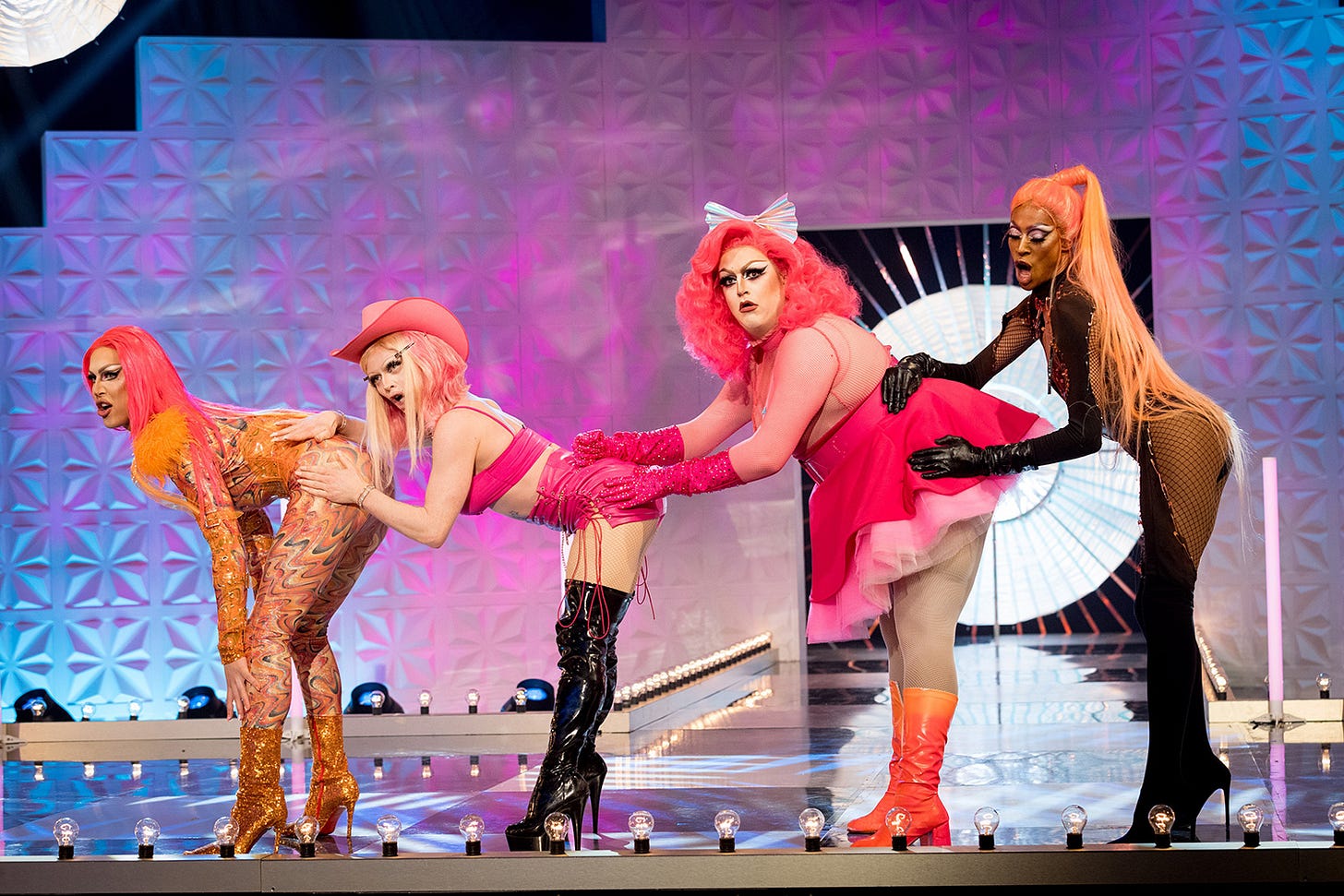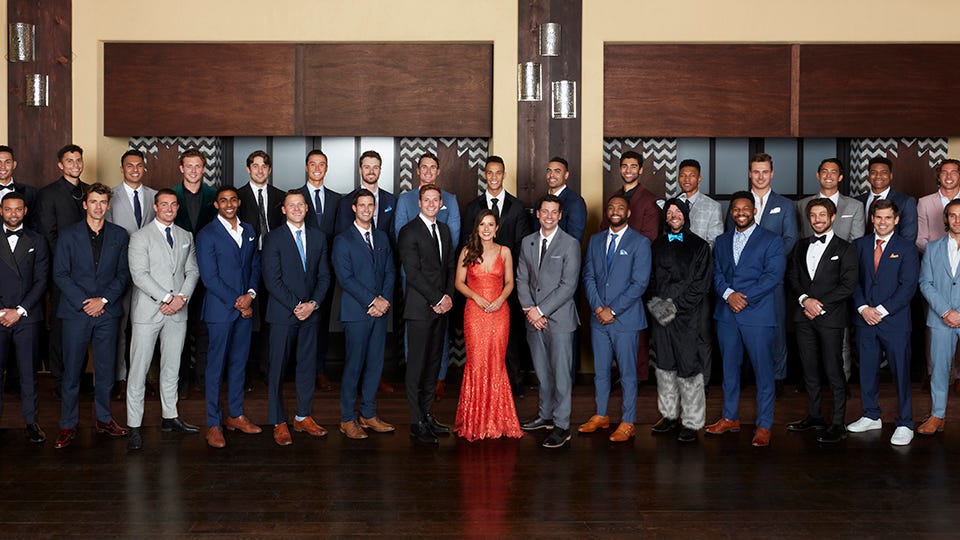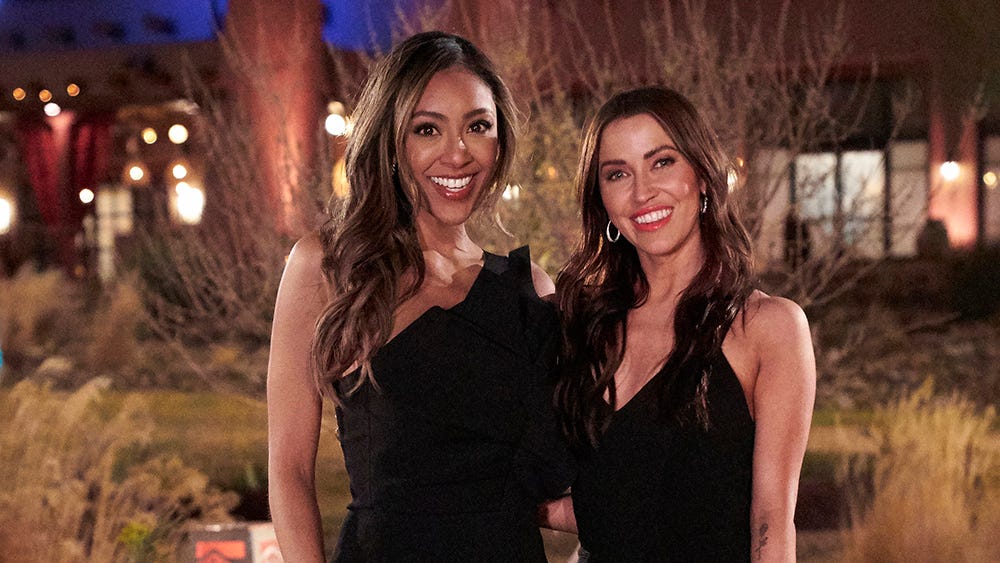"Winning" at Reality TV Is A Lot Easier Than It Used To Be
NO ONE'S HERE FOR THE RIGHT REASONS!!
Thanks in part to franchise opportunities, as well as the rise of influencer culture, reality television has become more and more of a sure way to launch a career in entertainment.
What was once considered a trashy bid for attention that inexplicably, randomly turned out stars like Emma Stone (In Search of the Partridge Family), Susan Boyle (America’s Got Talent) and Snooki (Jersey Shore) (FIGHT ME), is now a legitimate way to gain followers and brand deals that could lead to bigger things. Rachel Lindsay (The Bachelorette) is a correspondent for Extra; Kendall Jenner (Keeping Up With the Kardashians) and Bella Hadid (Real Housewives of Beverly Hills) are the closest thing our generation has to supermodels; and Omarosa (The Apprentice) received a White House appointment.
While certain shows have embraced this possibility – stoking the flames of fame to attract more contestants as they continue to build their franchises – others have intentionally shied away from that angle, even going so far as outright villainize it.
Let’s take a look at how differently RuPaul’s Drag Race and The Bachelor franchise treat post-show fame during filming:
When you’ve been on the air for decades, you either learn to change with the times, or you get stuck with the sensibilities to which you adhered when you started out.
RuPaul’s Drag Race is a reality show that’s a combination modeling-sewing-acting-singing-dancing competition for drag queens, where the most important element is to make the judges laugh.
The Bachelor(ette) is a heterosexual reality show where 25 people compete for one person to fall in love with them. 95% of the time, there is an engagement at the end of six weeks.
Both shows have been on the air for awhile. Both have been accused of being behind the times (Drag Race for not allowing transgender contestants or having a series of skinny white queens win consecutively, The Bachelor for not featuring a lead of color and not allowing the Bachelorettes to propose on their own seasons, among other things) and both have made (perfunctory) efforts to address the issues leveled at them (after lots and lots of backlash).
Both shows have spinoff series – RuPaul’s Drag Race: All Stars and Bachelor in Paradise, respectively – where the losing contestants get another opportunity to appear, almost making it more strategic to lose an original season so that you can get more screentime.
(These spinoff shows have also made the contestants much less catty. Now that the only options aren’t win or lose, the contestants can form more friendships on their original seasons – even if they don’t win, they could get cast on All Stars, or cast as the next Bachelorette. There are other options, which leaves room for more sportsmanship.)
Both shows are regularly accused of heavy-handed behind the scenes producing and editing – which, lol, features on every good reality show.
Both shows are elimination-style, based on arbitrary criteria that may or may not be conveyed to the viewer based on the editing. The better the exit, the more memorable you’ll be.
For better ….
Or for worse.
(For the record, the Luke P situation seems like real miscommunication. I’m not very familiar with Christian communities, but if they’re anything like Jewish communities, there are lots of subtle variations from one to the next. An issue regarding whether or not she’d have sex before marriage kinda makes it sound like Luke thought Hannah was on the same page as him, and didn’t know to take her modern feminism into account. And she obviously really, really liked him, so she might not have realized how fundamentalist he was. Anyhow.)
The Major Difference
For me, the glaring difference between the two shows – other than the obvious – is that when drag queens get cast on Drag Race, it’s an automatic win for them. Even the first eliminated queen gets a huge bump for their platform. They’re booked on bar circuits for performances, they host viewing parties during the season, and if they’re very Chosen, they can get representation from Voss Events and go on global tours or get a Vegas residency.
Even aside from all that, the most savvy queens arrive on set with their personal branding ready to go.
Every queen knows to come in with a catchphrase they can print on merch, professional photographs of each of her runway looks to sign and sell, and a music video to release upon elimination.
That’s the best way to use the platform – to get an audience after the show, who will come to your solo shows, or watch the movies you get cast in, or buy your makeup line. Everyone understands this about Drag Race.
BUT DON’T YOU DARE DO THAT ON THE BACHELOR
It’s still laughable that, along with all of its out-of-date sensibilities, The Bachelor(ette) insists on focusing on who’s there for “the right reasons”. No one is! NO IS HERE FOR THE RIGHT REASONS! There is not one person who enters the Bachelor Cinematic Universe without hoping to gain something out of it other than love.
Bachelor Nation contestants are eviscerated if they openly admit they want to be an entertainer. The one clear, true motive to come on the show – never mind that half of them don’t even know who the lead is going to be when they get cast – is to FIND LOVE.
If you come on The Bachelor for any reason other than LOVE, you are here for THE WRONG REASONS. You are using the show as a PLATFORM and this is now a DRAMATIC STORYLINE.
So instead, once the show ends and they’ve accumulated followers by being super hot or super sassy or super villainous, they go about it in more subtle ways.
They make brand deals and sell products on their “personal” Instagram accounts, or open clothing boutiques, or start making jewelry, all balanced with just the right amount (and type) of charity support.
So how do you ride the wave?
Nowadays, you don’t have to win a reality show competition to get a career out of it: you just have to be pretty, or interesting, or shameless enough for people to want to follow you on Instagram. Then you can sell products that hopefully aren’t too embarassing and go to lots of parties and wear stylish clothes and be an aspirational source of entertainment for your fans.
They’re essentially continuing the reality shows, but on their own terms.
And that’s the low end, bare minimum of the spectrum.
Now, you don’t have to be Lawrence Chaney and win RuPaul’s Drag Race: UK to get a career – you can be Bimini Bon Boulash, Tayce or A’whora, booking runway modeling gigs, music videos and fashion editorials up the wazoo.

You don’t have to win Colton Underwood’s heart on The Bachelor (sounds like you’re better off it you didn’t), you just have to wait it out like Tayshia Adams: do a stint on Bachelor in Paradise, accept the runner-up replacement Bachelorette position when Clare Crawley can’t keep it in her pants, and when Chris Harrison is interviewed on national television by a former Black Bachelorette and shows a deep misunderstanding of the current social climate, ride that 100-watt smile to become co-host of the entire freaking show.
Contestants often forget that the amount of control they have over their narratives is negligible.
It’s even a good situation if a contestant gets a “villain edit.” In the olden days, if a contestant was presented as the villain of their season, they turned into Public Enemy #1 overnight. There wasn’t much to get out of that experience – a couple of talk show guest spots, maybe – but for the most part, the fans just didn’t want you around.
Now, everyone loves a good redemption arc. Silky Nutmeg Ganache can go from most annoying contestant on RuPaul’s Drag Race to having such an emotional goodbye on RuPaul’s Drag Race: All Stars that fans are clamoring to support her. Krystal Nielson can go from Baby Voice on The Bachelor to celebrated and touted, thanks to a subsequent appearance on Bachelor in Paradise.
Wanna know the key to their success?
They had no idea they were the villains of their seasons.
Everyone expects to be a hero.
Everyone expects to be liked.
“The best villains are the ones who think they’re the hero” is exemplified over and over again on competition reality shows.
There are hours of YouTube footage with evidence of “Frankenbiting”, which is when editors take contestants’ quotes out of context and splice them together for the sake of a storyline.
When Chris Randone went straight from filming The Bachelorette to filming Bachelor in Paradise, he didn’t know he was a villain. Future ex-wife Krystal had to sit him down and explain that he needs to act like a human being if he wants to get anything out of the experience.
On the other hand, someone who definitely understood the assignment is Gia Gunn, first transgender contestant on Drag Race, who planned her altercations with Trinity the Tuck ahead of time with the aim of getting more screentime.
One last thing …
When comparing the two shows, I would say there’s definitely an element of privilege involved in how the contestants behave after their appearances. On Drag Race, you have a group of historically marginalized people who are, for the first time, getting mainstream recognition for their art. On The Bachelor, you typically have white people with the luxury of leaving their jobs and the confidence to believe they’ll “win” at a “game” of “love.” As a society, I argue that we’d allow the former to shill and self-promote to their hearts’ content, but seeing the latter do the same comes off as taking advantage.
Nonetheless, I think forcing contestants to upkeep this façade is at odds with the viewing experience – in that it’s super annoying to hear about every season – and also makes the people seem delusional.
Free the influencers! Let them influence! They’re giving you drama, and in return they’ll never be able to wait another table or bank counter for the rest of their lives. The least you can do is let them set themselves up afterward.









